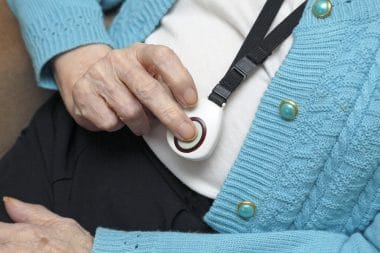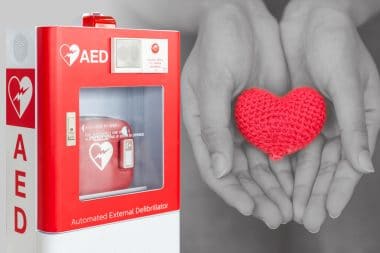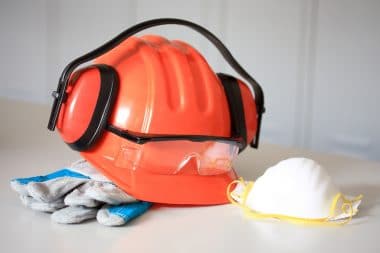When caring for a bedridden patient, it’s crucial to prepare to handle any emergency. Installing a good alert system is among the best ways to prepare for emergencies. Your patient can develop a sudden health issue or even fall. The installation of a good system enables bedridden patients to seek assistance or even take care of themselves when alone. That way, caregivers or family members can have peace of mind knowing that their loved ones are equipped to handle emergencies.
The current market has many types of alert systems. But, the best medical alert systems provide a way for patients that can’t get out of bed to call for immediate help. Most of these units come with voice activation or a button that conveys a signal to the right people. You can also find a unit with an innovative, wearable device that the patient wears on their wrist or as a pendant. And this makes help easy to get at any time.
Wearing the alert device may not prevent an accident or an injury. However, it ensures that the patient can always get help as fast as possible. And this makes everybody related to the patient more comfortable knowing their loved one can seek help anytime 24/7.
Features to Look for When Buying an Alert System for a Bedridden Patient
Research has shown that a good alert system can decrease the duration that a patient stays in the hospital while improving the quality of their life. Additionally, adult children purchase most systems for aging parents. But, with many options in the market, most people don’t know how to identify the best system for their loved ones. Here are important features to look for in an alert system.
Voice Feature
A voice feature should be a must-have for an alert system when taking care of a bedridden patient. That’s because this feature allows the patient to communicate with the operator, even without raising a finger. As such, the patient can use the system to tell the operator their needs. In response, the operator can keep the patient calm and assure them that emergency help is on the way.
Call Button
An ideal system should come with a waterproof button for making calls. This feature is very important because it enables the patient to put it on even inside a bathtub or shower. Most patients and seniors fall in these parts of a home and don’t know how to seek assistance.
What’s more, an ideal unit should come with a call button for the main console. This reassuring feature helps when the patient misplaces the wearable button. What’s more, it allows the caregiver to seek assistance during the emergency.
Medication Reminder
You can also go for a system that comes with a medication reminder. That means you can program the unit to remind the patient to take medications. This feature is very useful if the caregiver is not always at home. But, don’t forget that the feature can only remind the patient to take medication. It can’t provide dosage or medication information.
Activity Monitoring
You can also buy a system with an activity monitoring feature. With such a feature, the patient can press a system console’s button every 12 hours to confirm they’re okay. Failure to do this alerts the monitoring company. Some systems come with door contacts and motion detectors that track the movement of the patient in a house.
System Requirements
Before you invest in an alert system, find out what it needs to operate properly. An ideal system should have a battery backup. This is very important because it means the patient can use it during a power outage. You should also find out about the duration for which the system can use the battery, both the wearable button and console. Also, find out how the unit will alert the patient when the battery starts to run low.
Fall Sensor
You want to be alerted if your loved one falls from the bed. Most systems come with a fall sensor. That means you can be alerted from any location if your loved one tries to get out of bed and falls.
Research indicates that even caregivers need support. The best alert units are designed to provide the support that caregivers need to take care of bedridden patients with ease.
Advice on Caring for Bedridden Patients
Having a good alert system in place might not be enough. You also need to consider different aspects of the bedridden patient’s life. Here are other things to consider when caring for your bedridden patient.
Hygiene
A bedridden patient might need assistance with dental care and also bathing. Grooming hair and trimming nails will prevent the patient from scratching themselves. What’s more, it will minimize bedbugs, lice, and other parasitic infestations. Proper hygiene care can also promote the self-esteem of the patient.
Proper Nutrition
Talk to a dietitian or healthcare provider to know the right diet to prepare for a bedridden patient. Talk to the medical practitioner about the eating habits of your loved ones. Essentially, use information from a dietitian and a healthcare provider to provide proper nutrition to your bedridden patient.
Keep the Patient Comfortable
Taking care of a bedridden patient is not only about feeding and bathing them. You also need to ensure their comfort and entertainment. For instance, provide magazines, books, newspapers, and a television nearby. Maintain proper ventilation in their room and change bed linens regularly. Ensure that the bedroom is always neat and clean.
The Bottom Line
Research indicates that bedridden patients are at a high risk of developing medical complications. Installing a good alert system with the right features and following the advice provided in this article can help minimize the chances of getting these complications. What’s more, talking to experts like healthcare providers and dietitians can help you know the best way to care for your loved one. Follow the tips provided here when purchasing an alert system to help you take proper care of your bedridden loved one.








Reply